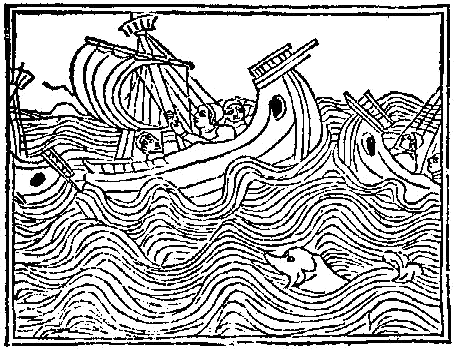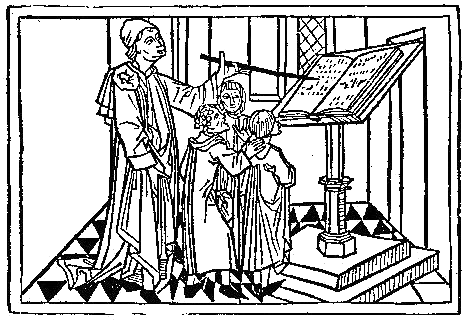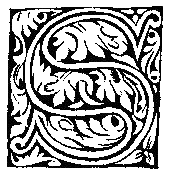Enderal:Encyclopedia Arcana - Magic
 here is probably no natural phenomenon that is as eclectic, fascinating and widely misunderstood as magic. This corpus aims to provide an overview of what is currently known of this innate ability and to disprove some common misconceptions.
here is probably no natural phenomenon that is as eclectic, fascinating and widely misunderstood as magic. This corpus aims to provide an overview of what is currently known of this innate ability and to disprove some common misconceptions.
Little has been handed down about how Asâtoron, the first Aeterna, and the Ash People explained magic. What is known is that Asâtoron considered the higher prevalence of magical talent among Aeterna evidence of the Aeterna as an inherently superior race. After Starfall and Asâtoron's disappearance, the natives of every continent came up with their own interpretations of magic. These predominantly focused on the role of a netherworld or gods of nature as the source of magical abilities in humans.
The first serious scientific examinations of magic began when the Light-Born came into power. The God Saldrin is regarded as one of the pioneers of the field. This might explain why many renowned arcanists are descendants from Qyra, his realm.
Since approximately 6000 a. St., consensus exists in the civilized world regarding the way in which magic functions. Some scattered wild mages might still operate under a more primitive understanding of their abilities, but these fringe theories can at the very best be considered outdated in academic circles and ought to be of little interest for the student of magic. Only in wild, Pathless parts of the world does magic continue to be regarded as a shamanistic, supernatural phenomenon.
To understand the foundation of magic, the student must grasp one fundamental truth: Vyn and the universe are just one of countless realities. From a universe where the water is red and the sky is green, to one in which neither have ever originated, everything imaginable exists simultaneous to our reality. In other words: every possible event and state of reality exist parallel to what we perceive. Every state of reality that is not ours is termed as an "eventuality", and the sum of these as the "Sea of Eventualities".
Once this is understood, the mechanisms of magic are easily explained: magical talent is the ability to perceive eventualities adjacent to our own; magical power allows one to bring said eventualities into our reality. For instance, if an elementalist wishes to set fire to a tree, they look into the Sea of Eventualities for a reality in which the tree, through a chain of improbable coincidences, has burst into flames. Through vast mental exertion, this aspect of the eventuality can subsequently be brought into our world.
The talent of a mage determines how easily they can visualize the different eventualities in their mind's eye.Their actual power, which requires years of practice to master, shapes the ability to make the eventualities come true.
Magical talent is an inherent trait, although its potency can vary greatly between individuals. Approximately one in a hundred humans or Starlings hold the potential for magical ability within them; for Aeterna the prevalence is about six in a hundred. The probability of being born with magical talent becomes higher when one of the parents is magically gifted as well, suggesting that this trait can in fact be inherited. Where exactly magical talent is located within the body has yet to be discovered. The currently prevailing hypothesis is one posed by the apothecarii and presumes that magic, like our virtues and temper, is "stored" in our blood. For further information on this topic, it is recommended the student of magic reads the book "Human Anatomy" by Rosana Kesselfeder.
Magical talent not only differs in strength, but also in the way it reveals itself. This can be a gradual development from the moment of birth, or a spontaneous manifestation of power that occurs regardless of age. Some magically gifted individuals even die without their talent ever having surfaced. However, observations have shown that life-threatening situations or liminal experiences - like hallucinations through the use of narcotics - can encourage its onset.
As spectacular as the possibilities upon discovering magical talent may seem, it should never be forgotten that this trait is also highly dangerous and poses a serious threat to both the mental and physical well-being of the individual. As one's magical talent begins to manifest, it is accompanied by a terrible affliction known as "Arcane Fever". The most common explanation for this condition is that the human mind is unable to cope with the suddenly obtained clarity of vision, combined with the simultaneous perception of multiple states of reality.
If one's talent emerges slowly, the fever will tend to follow a gradual progression as well; if instead there is a rapid onset of magical abilities, the fever will develop with equal abruptness. While the affected person will initially complain of nothing more than a mild feeling of weakness and an occasional headache, the symptoms will compound as time progresses. After approximately three moons, the magically gifted individual will begin to lose the ability to distinguish between the various eventualities. If left untreated, this will inevitably lead to complete insanity. Furthermore, as one's hold on reality is slipping, accidental incorporation of other eventualities into our world becomes increasingly likely.
Many wild mages owe their Pathlessness to the Arcane Fever. Although the characteristics of insanity may differ from person to person, one out of every five cases will result in the "Blue Death" within a year after the Fever's onset. The Blue Death owes its name to the distinctive deformation of the body of the afflicted, which culminates in the transformation into an outrageous, unpredictable beast known as an "Oorbâya".
Considering how devastating the consequences of untreated Arcane Fever are, no sane mages would remain if there were no means to combat it. As it is, various methods exist for safely gaining control of and further developing one's magical talents. Although the approaches may differ in nature and execution, the goal is the same: To only glance at the "Sea of Eventualities" when desired.
The most common and safest ritual is practiced in the civilized world and revolves around achieving control through meditation and reflection. Here in Enderal this ritual is known as the "Journey to the Water", and everyone who finds themselves with awakened magical talent is required to successfully complete it at the Holy Order, regardless of status and means. The Journey to the Water lasts one year and consists of education about the functionality of magic, as well as daily, hour-long meditation and prayer. In addition, periods of abstinence are required to improve both physical and metaphysical awareness. At the end of the year, the acolyte of magic has to prove that they have mastered their aptitude and are no longer in danger of being overwhelmed by their sight into the Sea of Eventualities. Afterwards, they are free to return to their former lives on the Path.
As mentioned previously, more approaches to suppress Arcane Fever are known, but the student of magic is strongly advised against engaging in them. These alternative rituals rely on Entropic magic and pose an immediate danger to the ritualist, as well as the subject.
Regardless of experience and level of skill, no arcanist ever becomes fully immune to Arcane Fever. Casting highly taxing spells, especially Light Magic from the School of Thaumaturgy, will trigger the fever and cause it to rise. Should the mage not cease the fever-inducing spell in time, they may well push their mind into insanity and risk the Blue Death. Proximity to sites or objects with a strong magical aura can similarly fuel Arcane Fever. Because the cause of Arcane Fever in these situations is unrelated to insufficient control of one’s glance into the Sea of Eventualities, it cannot be lowered by the means employed during the Journey to the Water. Instead, practicing arcanists currently remain dependent on an alchemical concoction called "ambrosia" to keep their Arcane Fever at a safe, manageable level. Any student intending to try their hand at spells requiring intense concentration or wishing to travel to more remote areas would be wise to keep a few of these potions in reserve.
How magical talent develops after its subduement varies from person to person, just as the ability to glance into the Sea of Eventualities comes to be in a variety of manners. Some arcanists may never, regardless of their dedicated school, exceed the level of simple magical parlor tricks, while others may become respected arcanists in only a few years' time. The form of magic a gifted individual has an aptitude for is equally diverse: Some may develop an extraordinary focus and astuteness, others learn to wield the power of the elements.
Becoming a successful arcanist requires dedicated meditation, virtue, and - an aspect often neglected - knowledge of oneself. Learning one's deepest desires, ambitions and motivations is as crucial for the mastery of magic as controlling the glance into the Sea of Eventualities. The history of Vyn is rife with tales of arcanists, who out of a suppressed, unconscious need, allowed eventualities to enter our world, which brought tragedy and destruction upon themselves as well as others.
Even in the civilized world the stance on magic varies greatly between countries. This is primarily due to two causes: The varying ideals of the gods themselves, and the native cultures before their lands were conquered by the Light-Born.
In Enderal, every mage has to report their talent to the Holy Order upon discovery and undergo the "Journey to the Water". Refusing to do so renders one a wild mage in the eyes of the law, and therefore a Pathless criminal. After completing the Journey to the Water, the mage's name will be added to a register and their status elevated to arcanist. Skilled arcanists - especially those who take on the novitiate and join the Holy Order - are highly regarded, although they often face distrust and fear as well. According to the 101 Holy Verses, magical talent is not in opposition to the Holy Path assigned to an individual. If, for example, a farmer discovers magical talent within himself, he is still expected to continue on the Manufacturer's Path upon completion of the Journey to the Water. Magical talent is thus to be understood as a challenge which must be conquered.
In Nehrim and Arazeal, the approach to magic is very similar to the Endralean way - at least in the civilized parts. Qyra and Kilé have fewer regulations surrounding magic. There, the magically gifted can join so-called mage circles, consortia of arcanists offering their services as mercenaries and researchers. These circles represent very progress-oriented and pragmatic ideals, which is why many notable arcanists and researchers of Vyn originate from them. Although a free-spirited individual may find these thoughts appealing, it is an open secret that certain circles, especially the "Sbintoza", also offer their services for more unscrupulous research purposes. For further information, the student of magic is recommended to read the work "The Sbintoza - Facts and Speculation" from the same author.
The lands of the wild handle magic - as one would expect - in a primitive and almost pitiful manner. They attribute their magical talents to nonexistent idols or the voices of the dead and practice shamanistic rituals. For this reason, they will not be elaborated on further in this tome.
(Librarian's note: Since the death of Erodan and the takeover of Nehrim by Chancellor Barateon, only the members of Barateon's guard are permitted to use magic. Wild mages, especially Aeterna, are pursued and punished with draconian brutality. The root of this persecution is, presumably, the chancellor's fear that his power might be challenged.)


